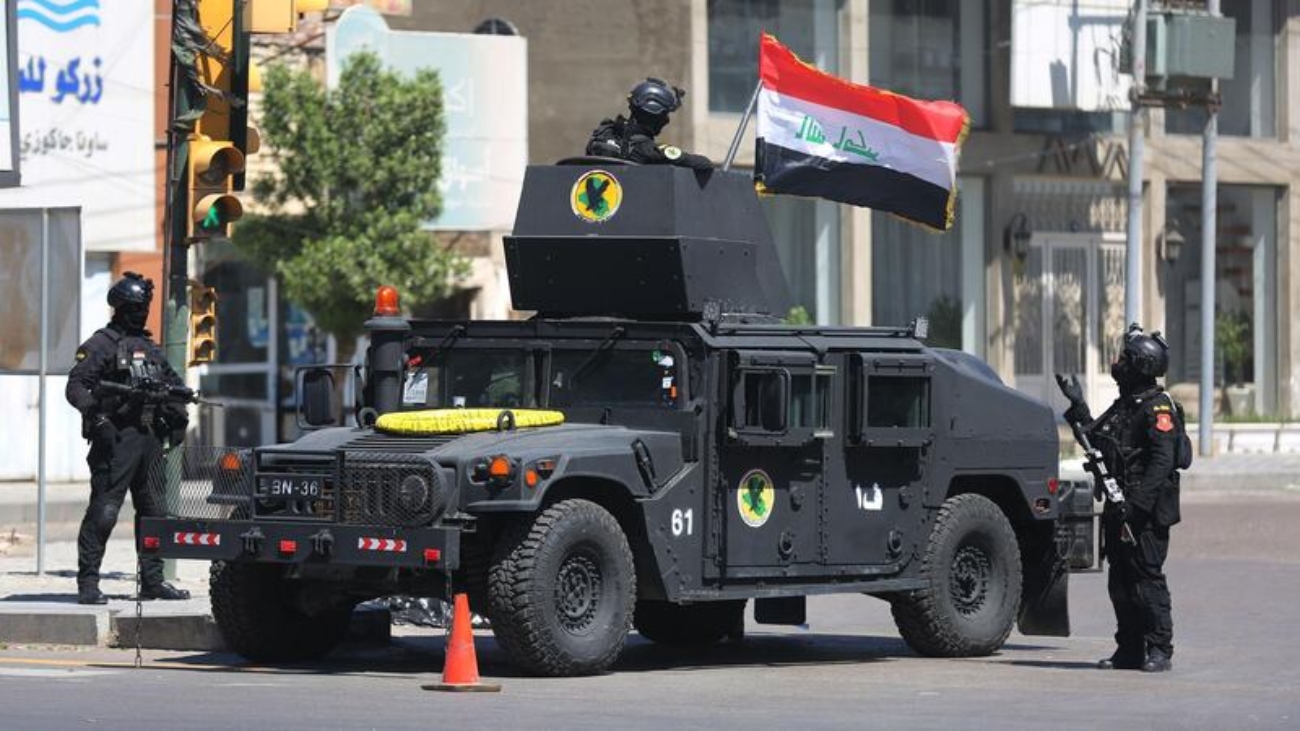Two sides will address security issues and role of US forces in Iraq
This piece was originally published on the thenationanewsl website https://thenationalnews.com/
US Secretary of State Antony Blinken and Iraqi Foreign Minister Fuad Hussein will tackle security and economic co-operation on Wednesday in the first strategic dialogue between Baghdad and Washington since President Joe Biden entered office.
Iraqi Prime Minister Mustafa Al Kadhimi was the first Arab leader to receive a call from Mr Biden in February.
The dialogue, which will happen online because of Covid-19, was prompted by a request from Iraq to clarify critical issues in the relationship.
The White House said that trade, culture and climate are on the agenda, as well as security and the role of US forces in Iraq.
Perhaps more urgent for Iraq is discussing the US military role amid increasing attacks by pro-Iran militias on joint bases and in the Green Zone, home to the American embassy.
“The meetings will further clarify that coalition forces are in Iraq solely for the purpose of training and advising Iraqi forces to ensure that ISIS cannot reconstitute,” White House press secretary Jen Psaki said.
James Jeffrey, a former US ambassador to Iraq, told The National that Baghdad and Washington disagree on how to counter these militias, which are calling for US troops to be withdrawn.
“Differences remain on how to combat Iranian influence, especially through Iraqi Shiite militias under Tehran’s sway,” said Mr Jeffrey, who is now the chairman of the Middle East Programme at the Wilson Centre.
Mr Al Kadhimi has been under pressure from Iran-backed factions and the Sadrist movement to push for the withdrawal of the 2,500 US troops in the country as part of the US-led coalition fighting the remnants of ISIS.
“Our security and military co-operation is essentially tied to Iraq’s war against ISIS and our request for help from the international coalition led by the US in 2014,” Mr Al Kadhimi told The National in an exclusive interview published on Tuesday.
He said the next phase of US-Iraq military co-operation was linked to “training, equipping and providing intelligence support for the Iraqi forces”.
“We believe the Iraqi forces are ready for this transition,” Mr Al Kadhimi said.
Bilal Wahab, a fellow at the Washington Institute for Near East Policy, said: “The Iraqi top brass says that the readiness of the Iraqi military today is worse than it was in 2014, which means that the prime minister cannot say we don’t need the Americans.
“We can’t stand on our feet and fight ISIS.”
But Mr Wahab said that Mr Al Kadhimi “is under tremendous pressure, direct pressure from Iran and indirect pressure from the militias, that he must call or he must put an end to all US military presence in Iraq”.
He said Mr Al Kadhimi’s deal with the Trump administration to cut the US presence in Iraq from 5,000 to 2,500 military advisers after last year’s strategic dialogue “wasn’t much of a win” for him, as it did little to placate the pro-Iran factions.
A series of attacks from Iran-backed militias on US forces in Iraq prompted Mr Biden to launch a strike on two Iran-backed Iraqi militias stationed in Syria this year.
And while Mr Al Kadhimi did not single out any militia by name, he did outline a plan to tackle “armed groups” that he referred to as “outlaws” and “organised criminal groups”.
The US has been pushing Baghdad to crack down on these militias and arrest those behind attacks on the joint bases and against activists.
But more broadly, Mr Jeffrey said there was agreement on deepening the ties between the two countries.
“Both agree on the diplomatic, security and economic centrality of the bilateral relationship, including in the effort against ISIS terrorism,” he said.
Other experts have cautioned the US against making big concessions in any new framework with Baghdad.
Elie Abou Aoun, director of Middle East and North Africa programmes at the US Institute of Peace, said the US should not limit its diplomatic presence in Iraq.
“The Iranian influence in Iraq is obviously strong but remains reversible,” Mr Abou Aoun told The National.
“It is essential for the United State to make sure that any coming agreement with Iraq does not limit the space of American soft power as it is critical to continue deploying soft power tools to counter the Iranian expansion in Iraq and the region.”
The expert praised Mr Al Kadhimi for, with the help of the US, making “bold decisions” that curtailed the influence of some Popular Mobilisation Forces groups in his first year in office.
Mr Abou Aoun said that included better performance in Customs fees collection, amounting to an increase of $120 million in 2020.
“This increase in Custom fees collection happened at a time when an empowered Iraqi government exercised better control in just two border crossings: Mandali and the port of Umm Qasr,” he said.
Mr Wahab said both sides should focus on economic matters and reforms in the messages they send to the public.
“The thing for both sides to do is benchmark the presence of Iraq’s advisers to Iraq’s [military] capacity, which is more measurable, and then focus on the non-security aspect,” he said.
“Focus on the economy, focus on reforms, focus on electricity, some of the things that Kadhimi has been doing well.”

